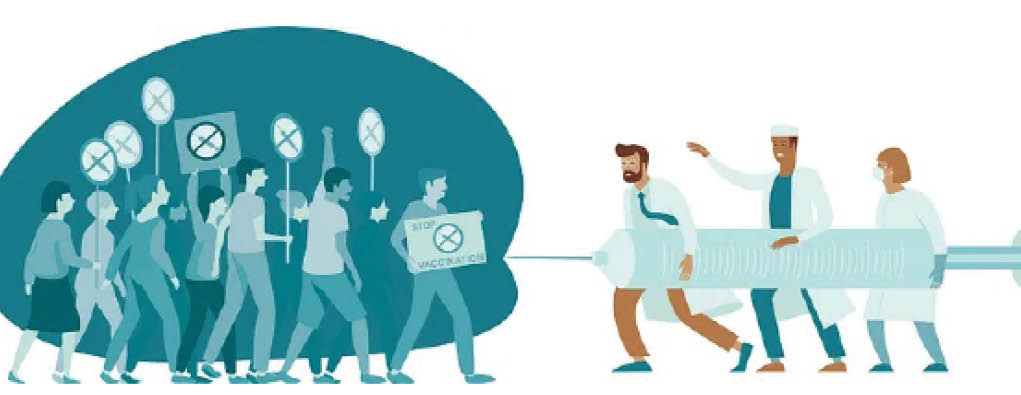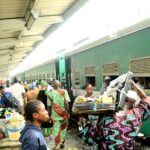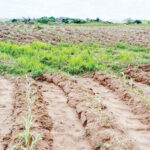Nyon Choti, who resides in Nasarawa, is in line for her COVID-19 jab, but her mother, who resides in Edo, is hesitant about being vaccinated. Now, Edo State’s recent announcement on restrictions on access to public places for residents without proof of vaccination has worsened her hesitancy.
In Lagos, Ayofunmi Oladimeji has been educated through several platforms on the importance of the COVID-19 vaccines, yet is against getting vaccinated.
- Buhari made me minister within 2 hours – Sale Mamman
- Shell: Our youths shot by army, NSCDC still missing – Bayelsa community
Reports of people contracting coronavirus and some dying despite taking the vaccine have cemented her reluctance, which is same for her husband, siblings and parents.
The Oladimejis are among the millions of Nigerians who are yet to be vaccinated even as the number of infections continue to soar as the country experiences the COVID-19 third wave.
The unavailability of the vaccine is a challenge for many on one side and the reluctance to have the vaccine by many is also another challenge.
These challenges are part of concerns that have got authorities worried, as the country fights the coronavirus pandemic – and tries to rise above the curve via vaccination against the virus.
The African Union has begun procurement and distribution of vaccines to complement other facilities across the continent. The move aims to see Nigeria get 50 million doses of vaccine by the end of December.
On a national level, the non-profit Nigeria Solidarity Support Fund is looking to clear the obstacles that constitute vaccine hesitance and getting about one million Nigerians vaccinated by next year.
The assistance to vaccinate starts with the most vulnerable population, says NSSF general manager Fejiro Chinye-Nwoko.
“The first is to collaborate with partner organisations to purchase more vaccines for Nigeria, and the second is to solve the vaccine hesitancy in Nigeria,” she says.
NSSF is a partnership between the Global Citizen and the Nigeria Sovereign Investment Authority.
This September, it will team up with Global Citizen at the Global Citizen Live event to call on world leaders, corporate organizations, and foundations to address critical issues affecting the world. At the top of the list is the COVID-19 pandemic and issues bordering on vaccine equity and vaccine hesitancy.
It is also working to raise N20 billion which so far over N1 billion in donations from around 48 people has been raised.
There is still a lot of hesitancy about COVID-19 vaccine around the world, even as more brands roll out and newer mutations of the virus start new infections.
By the last day of August, more than 216 million cases of COVID-19 have been confirmed, and 4.5 million people have died around the world, according to a dashboard the World Health Organisation keeps on the pandemic. Just over 5 billion doses of vaccine have been administered.
In Nigeria, more than 192,000 cases have been confirmed, 11,203 are active cases and 2,469 people have died, the Nigeria Centre for Disease Control indicates.
Figures available from Our World in Data three days before show 4.18 million doses of vaccines have been administered, but only 1.43 million people have been fully vaccinated – that is 0.7 per cent of a population numbering up to 200 million.
Studies are still trying to unpack the hesitancy around COVID-19 vaccine. One study in Delta found “significant relationship” between vaccine acceptance and a host of factors – gender, religious affiliation, education, employment status, income, self-reported susceptibility to the disease and government interventions against the pandemic.
The study is published in a journal by the Nigerian Medical Association, Rivers.
Another Nigerian study published in April in the Asian Journal of Research in Infectious Diseases surveyed nurses, pharmacists, medical laboratory scientists and non-clinical officers in Bayelsa.
It found that nearly seven in 10 people “who refused the vaccine did so because they wanted to see what would happen to those who received the vaccine”. And six in 10 people felt the vaccine has not gone through enough critical trials.
Chinye-Nwoko says the hesitancy boils down to people either not willing or not knowing the benefits of a vaccine.
“So, we are going to be doing a bit of advocacy to promote the uptake of the vaccine so that we can get hold of this pandemic once and for all.”
Getting up to 90 per cent of the population vaccinated could well protect the rest.
“We need to get there right now. We are one per cent nowhere near that,” says Chinye-Nwoko.
Choti and her mother are examples.

 Join Daily Trust WhatsApp Community For Quick Access To News and Happenings Around You.
Join Daily Trust WhatsApp Community For Quick Access To News and Happenings Around You.


